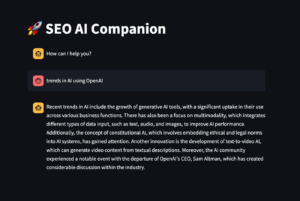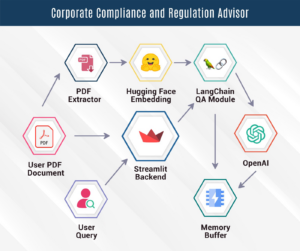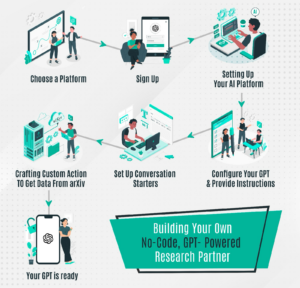In the fast changing world of ai entrepreneurship, dreamers must make many important choices to turn ideas into ventures. If you are on the path of ai entrepreneurship, you likely face key questions that shape your fate. This post will help you with the main questions every ai entrepreneur should think about, from finding good business ideas to grasping the hard challenges of the ai field.
We will look at the important business questions that sharpen your goals and guide your strategies. We will discuss the difficulties you might encounter, and point out the skills needed for success in this tough area. Whether you are new or trying to improve your strategy, our ideas will help you lay a strong base for your ai business. Prepare to discover how to succeed in the exciting world of ai entrepreneurship!
Key Business Questions for Aspiring AI Entrepreneurship
For anyone looking to venture into AI entrepreneurship, it’s important to reflect on several key business inquiries. These questions can help steer your startup journey. They should highlight your business idea’s viability and the overall market. Here are three crucial questions:
1. What exact problem do I want to solve? Grasping the issue you’re tackling is vital for any startup. In AI entrepreneurship, pinpointing a real problem affecting a large group of potential clients is key. Examples include AI-based customer support solutions and predictive analytics in healthcare, which meet certain demands.
2. What do my potential customers think, and what needs do they have? Engaging with your target audience early lets you find out their views and needs. This could involve surveys, interviews, or even building minimum viable products to collect feedback. Insights from prospective users shape your product design and give a competitive edge.
3. Is my idea likely to succeed financially, and what revenue models could I use? Evaluating the financial side of your AI concept is critical. Look into different revenue models like subscriptions, licensing, or consulting services that fit your solution. For instance, the AI tools industry shows how a subscription model works well for customers wanting flexibility and entrepreneurs needing consistent income.
These essential questions provide a foundation for deeper investigations of obstacles you may encounter in AI entrepreneurship, along with potential chances that could arise from your findings. A solid preparation and knowledge of the market will boost your chances for success and position you favorably amid competition.
Challenges in AI Entrepreneurship
Entrepreneurs in AI entrepreneurship face many challenges that complicate their journey. One major hurdle is the high financial investment needed to create AI technologies. The starting costs can reach hundreds of thousands or even millions of dollars, based on how complex the AI solution is. This financial barrier may stop many potential founders, especially those lacking sufficient funding.
The technical complexity involved in building AI applications poses another big challenge. Many founders encounter a skills gap that is pronounced. The fast-changing AI landscape demands a solid grasp of data science, software engineering, and machine learning. A lack of qualified professionals in the field makes things harder, so aspiring entrepreneurs need to either upskill or find capable partners who can handle project technicalities.
Navigating regulatory compliance and ethical standards also proves challenging for AI entrepreneurs. As the use of AI grows, regulators are focusing on new guidelines for ethical usage and data security. Entrepreneurs must keep up with these rules to avoid legal risks that could threaten their business. In fact, 65% of AI firms see regulatory issues as big obstacles, making the task of staying compliant while innovating quite tricky.
These challenges showcase the complex world of AI entrepreneurship. Success requires more than just great ideas; a strong strategy to overcome obstacles is vital. As the field evolves, it becomes necessary to look into key areas where entrepreneurs should direct their focus to improve their chances of success in such a competitive environment.
Key Areas of AI Entrepreneurship
Aspiring AI entrepreneurs must navigate a complex landscape of innovation and growth. Recognizing key areas can help drive advancements and value. These areas show significant market opportunities and demonstrate how artificial intelligence can change many industries.
Healthcare is a leading area for AI. AI diagnostics can transform care for patients. Huge investments are directed to AI innovations that enhance accuracy in diagnosis while lowering costs and personalizing treatments. AI tools analyze medical data with precision that outpaces humans, providing quicker, more correct diagnoses.
The finance sector see AI improving risk assessment. Financial companies use AI models to handle massive data sets. This allows them to predict market trends and evaluate borrowers better. This becomes vital as companies seek to reduce risks in a fast-changing economic landscape.
Retail uses AI to make big improvements. AI solutions enhance customers’ experience through tailored shopping advice, managing stock, and making predictions. Such technologies help retailers optimize operations and boost sales while meeting consumer demands. By integrating AI into retail, businesses enhance efficiency and learn consumer trends.
Focusing on key areas lets entrepreneurs find where their talents meet market progress. This approach helps in building successful AI entrepreneurship ventures. These insights lay essential groundwork for discussing strategies to succeed in AI-driven industries.
Strategies for Successful AI Entrepreneurship
Starting in the field of ai entrepreneurship calls for a plan that sees challenges and finds ways for innovation and growth. There are several key strategies that can boost chances for success in this competitive environment.
One core strategy involves solving real problems. New AI entrepreneurs should find key issues across industries. Applying AI solutions can make big impacts. This way ensures businesses want tools that make operations smooth and boost productivity. For instance, using predictive analytics in supply chains tackles inefficiency. It greatly improves logistics, answering a vital need.
Creating a skilled and diverse team is another key area in ai entrepreneurship. AI’s complexities need a mix of skills from data science, software engineering, and specific industry knowledge. A varied team offers unique views. This leads to creative solutions that suit a wider audience. Teaming with experts from various fields helps form advanced, standout solutions in a crowded market.
Adapting to technology is a must for growth and staying relevant in ai entrepreneurship. Keeping up with new AI advancements and machine learning changes is crucial. Entrepreneurs need to be flexible. They must switch their tactics and adopt fresh tools that enhance their products. Using new techniques like natural language processing or computer vision can introduce exciting paths for development. This helps startups meet the fast pace of their industry.
By honing in on these strategies—tackling real-world problems, building a capable team, and staying aware of tech trends—new AI entrepreneurs can greatly raise their odds of success, making a real difference in their industries.
As we move to the next stage of your entrepreneurial path, let’s explore the best ai startup and business concepts gaining popularity now, offering inspiration and direction for your venture.
Top AI Startup and Business Ideas
The sphere of ai entrepreneurship changing. New entrepreneurs seeking ideas that use artificial intelligence can find many options. Here are some top ai startup concepts that could lead to success in this active market.
1. AI-driven healthcare solutions: The healthcare field looks for advanced methods to enhance care, lower expenses, and improve process. AI-driven healthcare solutions like predictive analytics tools, telemedicine platforms, and personalized treatment plans hold great potential to alter the industry. These applications use machine learning for analyzing big patient data, helping medical experts to make fast informed decisions. Also, Ai can boost drug discovery, trimming costs and time to market by about 50%.
2. AI-powered recruitment tools: The recruiting area changes as companies look for faster way to attract and hold talent. AI recruiting tools employ natural language processing and machine learning to evaluate resumes, track the performance of applicants, and pinpoint the top candidates for jobs. Automating tedious jobs and offering data insights, these tools can enhance the hiring effectiveness up to 30%. This assists firms in building better teams swiftly.
3. AI for smart home automation: The interest in smart home gadgets has increased greatly. The smart home market may grow to $174 billion by 2025. AI for smart home automation aims at crafting devices that connect to improve energy use, boost security, and simplify daily tasks. By adding AI to smart appliances like thermostats, lights, and security cameras, these options can adapt to users’ habits, optimizing home settings for a tailored experience.
While thinking about these ventures, understanding their place in market trends is key. Using AI in the listed areas not only tackles current problems but also opens the door for innovative solutions aligned with consumer needs.
Shifting into entrepreneurship requires a strong skill set. It’s important to find and strengthen vital entrepreneurial skills that will help your success in the field of ai entrepreneurship before launching your own venture.
Must-Have Skills for AI Entrepreneurship
A journey in the realm of AI entrepreneurship need an mix of skills that distinguish top entrepreneurs in a quickly changing world. Finance and networking is critical skills in the growth of AI ventures. Understanding financial principles let entrepreneurs manage budgets, obtain funding, and achieve profitability.
Networking is equally crucial. Building bonds with industry peers, mentors, and potential clients provides essential advice and resources. Adaptability too, is significant for AI entrepreneurs. In technology’s ever shifting field, adjusting to market feedback or trends often discriminates success from failure.
Entrepreneurs must accept feedback as a chance to learn. This mindset refines business models which improves product-market fit. Ultimately, it elevates user satisfaction and engagement, fostering client loyalty. Continuous learning remains important in AI entrepreneurship. Innovations arise rapidly in artificial intelligence. Staying current requires learning about new technologies and methodologies which holds much importance.
Investing in personal and professional development is critical. It lets entrepreneurs use new advancements while keeping a competitive edge. Engaging with thought leaders, attending workshops, and diving into up-to-date literature is necessary. With these core entrepreneurial skills, aspiring AI entrepreneurs can successfully handle complex technology fields.
These abilities support starting AI startups and help create sustainable strategies to exploit market gaps. As skill sets develop, creating a detailed business plan becomes key. It should define your vision, objectives, and approach to enter the AI market.
A strong business plan acts as a map for startups, boosting funding chances and establishing partnerships. Let’s discuss why structuring a business plan is vital in AI entrepreneurship.
The Importance of a Business Plan in AI Entrepreneurship
A strong business plan is key in AI entrepreneurship. It helps new entrepreneurs define goals and strategies clearly. With a solid plan, launching an AI venture becomes manageable. Creating a vision aids in outlining a path for market entry and growth. This keeps focus despite fast technology changes and tough competition.
Identifying market needs is core to a business plan. Knowing customer pain points lets entrepreneurs design their AI solutions. in AI, it’s important to research the market thoroughly. This helps in finding gaps and chances for innovation. Services that meet user needs draw in early adopters and support lasting growth.
Financial details and operations must also be included in an AI business plan. Outlining startup costs and funding needs gives a path for managing finances. Clear monetary projections can build stakeholder confidence. This helps gain investments and align internal resources. AI is continuously changing, so a flexible operational plan helps adapt to shifts in the market while sustaining core ideas.
A comprehensive business plan goes beyond being a simple document. It is a strategic asset for AI entrepreneurs, providing insights for success. With careful strategy, chances for enduring achievement in AI entrepreneurship increases significantly.
Conclusion
Aspiring AI entrepreneurship holds thrills and obstacles. This article examined key topics for your journey. We covered vital business questions, challenges in AI entrepreneurship, and strategies for success. Also, we pointed out startup ideas and skills needed in this evolving area.
Reflect on your position in AI entrepreneurship. Start using the strategies provided, create a solid business plan, and develop the skills to succeed in AI. The insights shared here are a call to action. Turn your ambitions into real impact in the AI space.
The path to successful AI entrepreneurship requires planning and grit. Face challenges, stay inquisitive, and take steps towards your goals. Your venture into AI entrepreneurship begins right now!
About AI Product Accelerator
AI Product Accelerator offers a structured 12-week program designed to help aspiring and experienced AI entrepreneurs build and launch valuable AI products through comprehensive coaching and practical insights.
Join our supportive community today and transform your AI concepts into market-ready solutions by visiting aiproductaccelerator.com.




